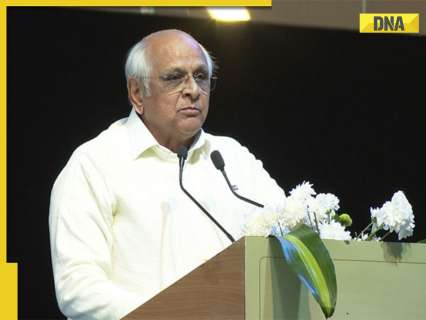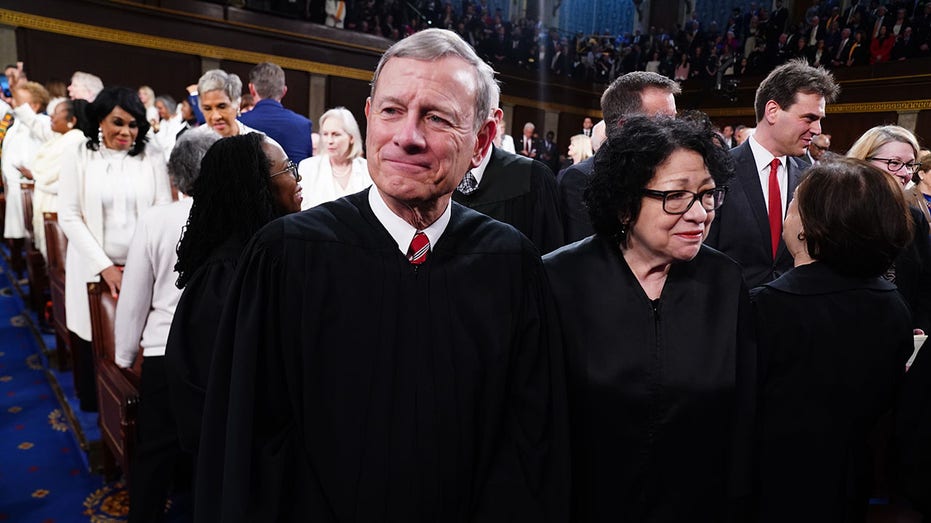Gujarat to have 34 districts, govt splits Banaskantha to create Vav-Tharad

The decision to carve out a new district was taken in a Cabinet meeting chaired by Chief Minister Bhupendra Patel in Gandhinagar
Who is Tahawwur Hussain Rana likely to be extradited to India, he was friends with…

Rana maintains that his visit to India was for legitimate purposes related to his immigration consultancy business and claims to be a pacifist who has been misled and framed by Headley.
Shillong Teer Results TODAY January 2, 2025 Live Updates: Winning Numbers For Shillong Teer, Morning Teer, Juwai Teer
Participants place bets on two-digit numbers, predicting how many arrows will hit the target during the competition. Each round lasts two minutes, with skilled archers shooting 30 arrows in the first round and 20 in the second.
Lucknow Murder Tragedy: Man shoots video of lifeless bodies after killing his own mother and sisters, says…

A man in Lucknow murdered his mother and four sisters, recorded a video explaining his reasons, and confessed to the police, citing harassment and pressure.
The Speaker’s Lobby: The Hitchhiker’s Guide to electing a House Speaker

The Constitution dictates that the 119th Congress begins at noon et on Friday. And the first order of business in the House is to elect the Constitutional officer for the legislative branch of government: Speaker of the House. Only the House votes for Speaker. And the House can’t do anything – I’ll repeat that, anything – until it chooses a Speaker. It can’t swear-in Members until the House taps a Speaker and he or she is sworn-in. The Speaker then swears-in the rest of the body, en masse. Then the House must adopt a rules package to govern daily operations. Only then can the House go about debating bills, voting and constructing committees for hearings. HEALTHY LIVING, PARTY UNITY, ‘SMELLING THE ROSES’: CAPITOL HILL’S NEW YEAR’S RESOLUTIONS If the House fails to elect a Speaker on the first ballot, it must proceed to a second ballot. And on and on. Consider for a moment that the House had never even taken a second vote for Speaker in a century before the donnybrook two years ago. It took four ballots to re-elect late House Speaker Frederick Gillett, R-Mass., in 1923. What is past is prologue for the House. Consider how the House consumed 15 rounds spread out over five days before electing former House Speaker Kevin McCarthy, R-Calif., in January, 2023. The Speakership remained vacant – and thus, the House frozen – for 22 days after Republicans dumped McCarthy nine months later. House Republicans then tapped House Majority Leader Steve Scalise, R-La., for Speaker. Scalise withdrew his name before there was even a floor vote. House GOPers then tapped Rep. Jim Jordan, R-Ohio, to become Speaker. But Jordan lost three consecutive votes for Speaker on the House floor, bleeding support on each ballot. House Republicans then anointed House Majority Whip Tom Emmer, R-Minn., for Speaker. Emmer withdrew hours later. House Republicans finally nominated House Speaker Mike Johnson, R-La., for the job. The Louisiana Republican won on the floor. But some conservatives have been disappointed in Johnson ever since. They’ve flagged how he handled multiple, interim spending bills from last November on. They didn’t like that he allowed a bill on the floor to aid Ukraine. They opposed him doing yet another interim spending bill in September. They really didn’t like how he worked with Democrats on major, must-do pieces of legislation. And then there was the misstep of the staggering, 1,500-page interim spending package which Mr. Trump and Elon Musk pulverized from afar in December. Johnson then did President-elect Trump’s bidding with another spending package – which included a debt ceiling increase. But 38 House Republicans bolted on that bill. So Johnson’s tenure has been bumpy. And that’s why he’s on the hook come Friday afternoon during the vote for Speaker. Everyone on Capitol Hill is on tenterhooks when it comes to wrapping this up expeditiously. Here’s what will happen Friday at noon: REPUBLICAN CONGRESSMAN CALLS ON INCOMING ADMINISTRATION TO TARGET ‘THE AXIS OF AGGRESSORS’ Acting House Clerk Kevin McCumber will preside until the House elects a Speaker. The first order of business is a “call of the House.” That’s where the House establishes how many of its Members-elect are there, simply voting “present.” The House should clock in at 434 members: 219 Republicans and 215 Democrats. There should be one vacancy. Former Rep. Matt Gaetz, R-Fla., resigned in the fall – and said he did not “intend” to serve in the new Congress, despite having won reelection. Watch to see if there are absences in that call of the House. Fox is told that Democrats who have struggled with health issues of late – including Reps. Raul Grijalva, D-Ariz., Dwight Evans, D-Penn., and former House Speaker Nancy Pelosi, D-Calif., will likely be there. But the Speaker’s election is about the math. How many lawmakers report to the House chamber will dictate margins in the Speaker’s vote. Then it’s on to nominating speeches. Incoming House Republican Conference Chairwoman Lisa McClain, R-Mich., will nominate Johnson for Speaker. House Democratic Caucus Chairman Pete Aguilar, D-Calif., will nominate House Minority Leader Hakeem Jeffries, D-N.Y. Anyone else can then place someone’s name in nomination. Then, the House calls the roll of Members-elect alphabetically. Each Member rises and verbally responds, calling out their choice by name. Reps. Alma Adams, D-N.C., Robert Aderholt, R-Ala., and the aforementioned Aguilar are the first names out of the block. But lawmakers can vote for anyone they want. That includes persons who aren’t House Members. That’s why there have been votes cast over the years for the late Gen. Colin Powell, Sen. Rand Paul, R-Ky., former Sen. Jeff Sessions, R-Ala., and former U.S. Comptroller General David Walker. This is what Johnson – or anyone else must do – to win the Speakership: The winning candidate must secure an outright majority of all Members voting for a candidate by name. So let’s say there are 434 members and all vote for someone by name. The magic number is 218. If Johnson gets the votes of all 219 Republicans, he wins. If Johnson gets 218 votes, he also wins. But 217? No dice. Under those circumstances Johnson would have prospectively outpolled Jeffries, 217-215 – with two votes going to other candidates. But the “most votes” doesn’t win. 217 is not an outright majority of House Members voting for someone by name. The House must take ANOTHER ballot to elect a Speaker. Fox is told there are anywhere from 12 to 17 Republicans who could vote for someone besides Johnson. And some Republicans are being cagey about their votes. BERNIE SANDERS PLANS TO SPEARHEAD LEGISLATION ON KEY TRUMP PROPOSAL Here’s something to watch: Members who vote “present.” Rather than voting for someone besides Johnson, some Republicans may protest by simply voting “present.” A “present” vote does not count against Johnson. So let’s do some hypothetical math here: Let’s say 434 Members cast ballots. Jeffries secures support from all 215 Democrats. Three Republicans vote “present.” In other words, not voting for any candidate by
Texas man identified as suspect in deadly New Orleans truck attack
FBI officials said Shamsud-Din Jabbar, a 42-year-old U.S. citizen and Army veteran, drove the pickup truck that fatally rammed into a crowd on Bourbon Street.
Who is IAS Bhuvnesh Kumar? Gold medalist appointed CEO of UIDAI, he is from…

Along with CEO UIDAI, Kumar continues to be an Additional Secretary in the Ministry of Electronics and Information Technology (MeitY), Government of India.
Rajasthan: 3-year-old girl, who was rescued 10 days after falling into borewell, dies

The first attempts to rescue her were simple-a ring lowered in hopes of pulling her out. But as the hours turned into days, it became clear that the task was far more complex.
Supreme Court Chief Justice Roberts issues warning on ‘judicial independence’ weeks before Trump inauguration

Supreme Court Chief Justice John Roberts issued a warning on Tuesday that the United States must maintain “judicial independence” just weeks away from President-elect Donald Trump’s inauguration. Roberts explained his concerns in his annual report on the federal judiciary. “It is not in the nature of judicial work to make everyone happy. Most cases have a winner and a loser. Every Administration suffers defeats in the court system—sometimes in cases with major ramifications for executive or legislative power or other consequential topics,” Robert wrote in the 15-page report. “Nevertheless, for the past several decades, the decisions of the courts, popular or not, have been followed, and the Nation has avoided the standoffs that plagued the 1950s and 1960s.” “Within the past few years, however, elected officials from across the political spectrum have raised the specter of open disregard for federal court rulings,” Roberts said, without naming Trump, President Biden or any specific lawmaker. “These dangerous suggestions, however sporadic, must be soundly rejected. Judicial independence is worth preserving. As my late colleague Justice Ruth Bader Ginsburg wrote, an independent judiciary is ‘essential to the rule of law in any land,’ yet it ‘is vulnerable to assault; it can be shattered if the society law exists to serve does not take care to assure its preservation.’” “I urge all Americans to appreciate this inheritance from our founding generation and cherish its endurance,” Roberts said. DEMOCRATS LAUNCHED ‘CALCULATED EFFORT’ TO UNDERMINE SCOTUS SINCE DOBBS, CBS REPORTER SAYS Roberts also quoted Chief Justice Charles Evans Hughes, who remarked that the three branches of government “must work in successful cooperation” to “make possible the effective functioning of the department of government which is designed to safeguard with judicial impartiality and independence the interests of liberty.” “Our political system and economic strength depend on the rule of law,” Roberts wrote. A landmark Supreme Court immunity decision penned by Roberts, along with another high court decision halting efforts to disqualify Trump from the ballot, were championed as major victories on the Republican nominee’s road to winning the election. The immunity decision was criticized by Democrats like Biden, who later called for term limits and an enforceable ethics code following criticism over undisclosed trips and gifts from wealthy benefactors to some justices. A handful of Democrats and one Republican lawmaker urged Biden to ignore a decision by a Trump-appointed judge to revoke FDA approval for the abortion drug mifepristone last year. Biden declined to take executive action to bypass the ruling, and the Supreme Court later granted the White House a stay permitting the sale of the medication to continue. The high court’s conservative majority also ruled last year that Biden’s massive student loan debt forgiveness efforts constitute an illegal use of executive power. THE BIGGEST SUPREME COURT DECISIONS OF 2024: FROM PRESIDENTIAL IMMUNITY TO OVERTURNING THE CHEVRON DOCTRINE Roberts and Trump clashed in 2018 when the chief justice rebuked the president for denouncing a judge who rejected his migrant asylum policy as an “Obama judge.” In 2020, Roberts criticized comments made by Senate Democratic leader Chuck Schumer of New York while the Supreme Court was considering a high-profile abortion case. Roberts introduced his letter Tuesday by recounting a story about King George III stripping colonial judges of lifetime appointments, an order that was “not well received.” Trump is now readying for a second term as president with an ambitious conservative agenda, elements of which are likely to be legally challenged and end up before the court whose conservative majority includes three justices appointed by Trump during his first term. In the annual report, the chief justice wrote generally that even if court decisions are unpopular or mark a defeat for a presidential administration, other branches of government must be willing to enforce them to ensure the rule of law. Roberts pointed to the Brown v. Board of Education decision that desegrated schools in 1954 as one that needed federal enforcement in the face of resistance from southern governors. He also said “attempts to intimidate judges for their rulings in cases are inappropriate and should be vigorously opposed.” While public officials and others have the right to criticize rulings, they should also be aware that their statements can “prompt dangerous reactions by others,” Roberts wrote. Threats targeting federal judges have more than tripled over the last decade, according to U.S. Marshals Service statistics. State court judges in Wisconsin and Maryland were killed at their homes in 2022 and 2023, Roberts wrote. “Violence, intimidation, and defiance directed at judges because of their work undermine our Republic, and are wholly unacceptable,” he wrote. Roberts also pointed to disinformation about court rulings as a threat to judges’ independence, saying that social media can magnify distortions and even be exploited by “hostile foreign state actors” to exacerbate divisions. The Associated Press contributed to this report.
Truck ramming attack kills at least 10 people in New Orleans

NewsFeed An armed man in a truck has ploughed through a crowd in the US city of New Orleans, killing at least 10 people. The driver then got out of his vehicle and opened fire, according to city officials. Published On 1 Jan 20251 Jan 2025 Adblock test (Why?)

